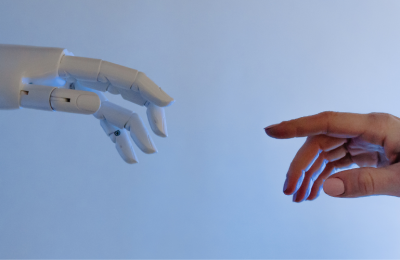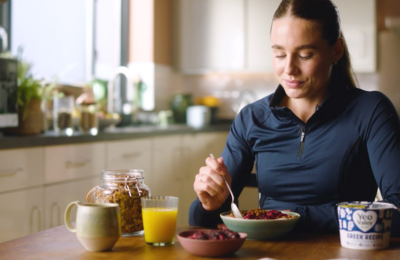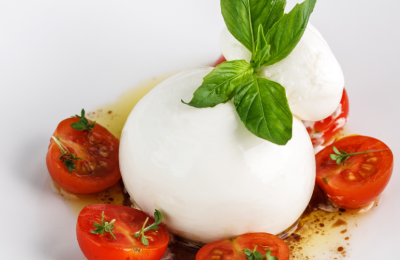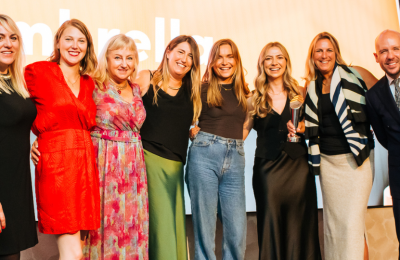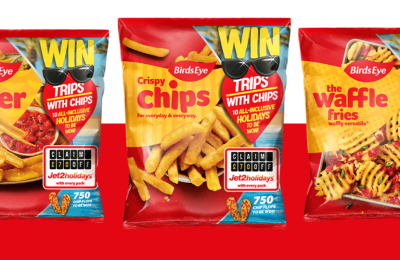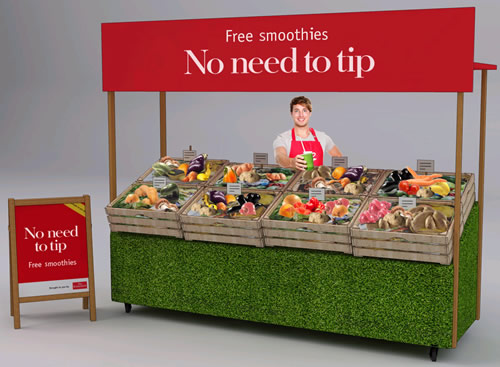The Economist newspaper has launched a new execution in its ‘Discomfort Food’ experiential strategy offering consumers free nutritious smoothies made from fruit and vegetables otherwise destined for the rubbish bin.
A pop-up market stall will illustrate that ugly, discoloured or mis-shapen produce, which is rejected by supermarkets, can still be eaten and tastes great.
The ‘From bin to blender’ campaign has been devised by agency Sense, which has been responsible for developing the Discomfort Food strategy and execution. The idea behind the strategy is that offering consumers challenging items as free samples – such as coffee made from beans collected from civet excrement or recycled toilet water, or crepes made with insects – highlights the media brand’s challenging content and ‘self selects’ consumers who are more likely to stay as subscribers when an introductory offer ends.
Supermarkets’ and consumers’ obsession with fruit and veg perfection is a key driver of the global food waste problem, with 600,000 tonnes of food thrown away each year in the UK by restaurants alone. Globally, 50% of all the food the world produces is wasted, yet one in nine people on earth don’t have enough food to live a healthy lifestyle. The ‘From bin to blender’ campaign is an innovative and engaging way to highlight both the issue and a solution.
“Serving waste-food smoothies gets people talking about important content from The Economist in an intelligent, approachable way,” said Marina Hadyn, Senior Vice President, Circulation and Retail Marketing at The Economist. “We want to invite potential readers to learn that we don’t only cover economics, but also the issues that impact our future. This experiential activation will leave them not only with a fresh smoothie, but also a fresh perspective on The Economist.”
“By challenging people’s perception about the food we throw away, this activity self-selects the globally curious consumer – just the kind of people who enjoy reading The Economist – increasing brand awareness and driving subscription sales at the same time,” explained Sense Account Manager Daniel Hennessey.
Over the past 12 months, the Discomfort Food strategy has generated in excess of 14,500 subscribers.
The campaign launched in Liverpool Street in the City of London on 16th June 2016, and will run throughout June and July.


